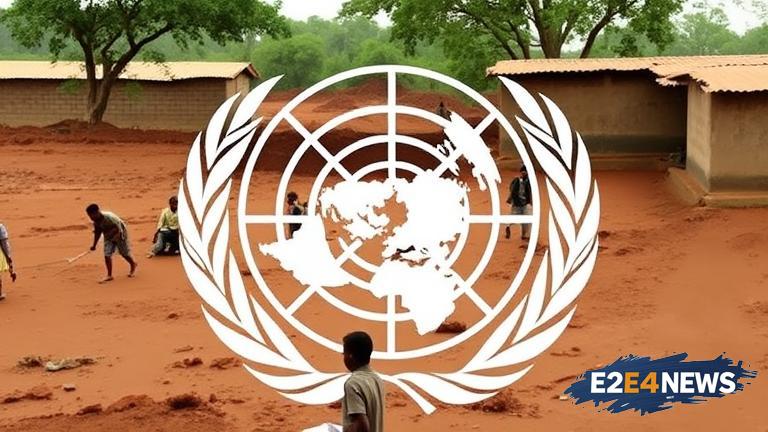The United Nations has issued a stark warning that funding for refugees in Uganda is on the verge of depletion, with the current resources expected to be exhausted by next month. This alarming announcement has sent shockwaves throughout the humanitarian community, as Uganda is home to over 1.4 million refugees, the majority of whom are from neighboring South Sudan. The refugees are largely dependent on international aid to survive, and the impending funding shortage has raised concerns about their ability to access basic necessities like food, shelter, and healthcare. The UN has been working tirelessly to provide assistance to the refugees, but the organization’s efforts are being hindered by a severe lack of resources. The funding crisis is attributed to a combination of factors, including a decline in donor contributions and an increase in the number of refugees seeking asylum in Uganda. The situation is further complicated by the fact that many of the refugees are women and children, who are particularly vulnerable to exploitation and abuse. The UN has appealed to the international community to provide urgent funding to support the refugees, but so far, the response has been inadequate. The consequences of inaction will be devastating, with thousands of refugees facing the very real possibility of starvation, disease, and violence. The Ugandan government has also been criticized for its handling of the refugee crisis, with some accusing the authorities of being slow to respond to the needs of the refugees. Despite these challenges, the UN remains committed to providing support to the refugees, and the organization is working closely with local partners to identify innovative solutions to the funding crisis. One potential solution is to increase support for refugee-led initiatives, which have been shown to be highly effective in providing assistance to vulnerable populations. Additionally, the UN is exploring ways to enhance the self-reliance of refugees, by providing them with skills training and economic empowerment opportunities. However, these efforts will require significant funding, which is currently in short supply. The international community must take immediate action to address the funding crisis, or risk exacerbating the already dire situation. The refugees in Uganda are not just statistics; they are human beings who deserve dignity, respect, and protection. It is our collective responsibility to ensure that they receive the support they need to survive and thrive. The UN’s warning serves as a stark reminder of the need for urgent action, and it is imperative that we respond with the necessary funding and resources. The clock is ticking, and the lives of thousands of refugees hang in the balance. The world must come together to address this crisis, and provide the necessary support to ensure that the refugees in Uganda receive the assistance they so desperately need. The situation is critical, and it requires a comprehensive and coordinated response from the international community. The UN’s appeal for funding is not just a request; it is a moral imperative. We must act now to prevent a humanitarian catastrophe, and ensure that the refugees in Uganda are able to live with dignity and respect. The fate of thousands of people depends on our response, and it is our responsibility to ensure that they receive the support they need to survive. The world is watching, and it is time for us to take action. The refugees in Uganda are counting on us, and we must not fail them.
